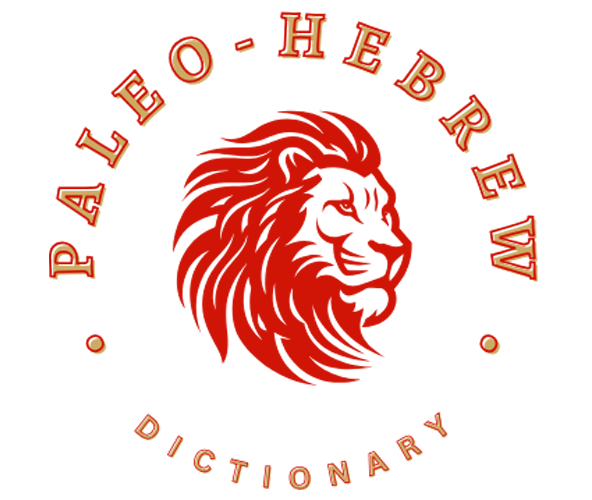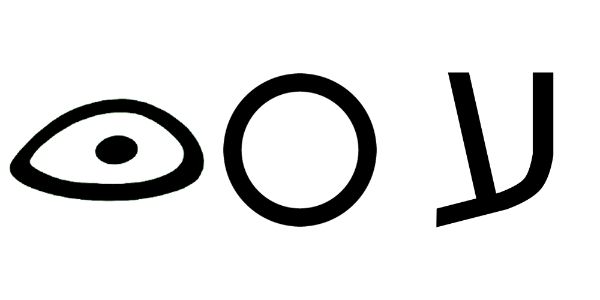The word ban (𐤁𐤍) means “son” meaning a male child or person in relation to his parents.
The Paleo-Hebrew language or the original language of the Ābarayam is one spoken with an emphasis on the rauakh (breath, wind, spirit). With the language of the Ābarayam, each letter has a meaning and a number associated with it that adds meaning to each word they’re used with. Below you will be able to learn more about the letter in Ancient Hebrew, Yiddish Hebrew, Greek, and much more.
Letter Meanings
| Letter | Meaning |
|---|---|
| 𐤁 (b) – ba | House, family, “in” Prefix: Converts a word into “Family of” or “in…”, “at…” “with…” |
| 𐤍 (n) – na | offspring, seed, fish, heir, kingdom, continue, perpetuate Suffix: forming nouns denoting one with a certain characteristic. Suffix: forming names of chemical elements. |
| Ābarayat Number | |
| Hebrew Gematria | |
| English Gematria | |
| Simple Gematria |
Based on the meaning of the letters the word could be defined as:
- “family offspring”
- “family heir”
- “family continue”
- “family perpetuate”
Definitions for 𐤁𐤍 / ban
| Language | Word | Transliteration | Pronunciation | Definition |
|---|---|---|---|---|
| Ābarayat | 𐤁𐤍 | ban | ban | son, afflicted, age, anointed one, appointed to, arrow |
| English | son | son | suhn | a male child or person in relation to his parents. |
| Hebrew | בֵּן | ben | bane | son |
| Arabic | ابن | abn | ab-nu | son |
| Greek | υἱός | huios | huios | a son, descendent. |
Images for 𐤁𐤍 / ban


Definitions for 𐤁𐤍𐤉 / banay
When adding the 𐤉 (yad) to the end of a word, it creates a possessive of the original word. It can either signify “my…” or identify a member of a nation. For example, 𐤏𐤁𐤓 (Ābar) is the progenitor, but 𐤏𐤁𐤓𐤉 (Ābaray) is the singular descendant of him also known as a Hebrew.
| Language | Word | Transliteration | Pronunciation | Definition |
|---|---|---|---|---|
| Ābarayat | 𐤁𐤍𐤉 | banay | baw-nay | “my son”, sonly |
| English | sonly | sonly | suhn-lee | of, like, or befitting a son. |
| Hebrew | בָּנִי | Bani | baw-nee’ | the name of several Israelites |
| Arabic | ابني | abni | ab-ni | my son |
| Greek | υἱός | huios | hwee-os’ | a son, descendent. |
Images for 𐤁𐤍𐤉 / banay


Definitions for 𐤁𐤍𐤉𐤌 / banayam
When adding the 𐤌 (mayam) after the 𐤉 (yad) to the end of a word, it creates a plural of the original word. It can identify multiple members of a nation. For example, 𐤏𐤁𐤓 (Ābar) is the progenitor, but 𐤏𐤁𐤓𐤉𐤌 (Ābarayam) are the plural descendants of him also known as Hebrews.
| Language | Word | Transliteration | Pronunciation | Definition |
|---|---|---|---|---|
| Ābarayat | 𐤁𐤍𐤉𐤌 | banayam | bana-yawm’ | sons |
| English | sons | sons | suhns | male children or persons in relation to his parents. |
| Hebrew | בֵּנַיִם | benayim | bay-nah’-yim | champion |
| Arabic | صبيان | sibyan | si-bee-yawn | boys |
| Greek | υἱός | huios | hwee-os’ | a son, descendent. |
Images for 𐤁𐤍𐤉𐤌 / banayam


Definitions for /
When adding the 𐤕 (tau) after the 𐤉 (yad) to the end of a word, it creates a plural of the original word. It identifies the language or a sign of a nation’s existence. For example, 𐤏𐤁𐤓 (Ābar) is the progenitor, but 𐤏𐤁𐤓𐤉𐤕 (Ābarayat) is the language of him also known as Paleo-Hebrew language.
| Language | Word | Transliteration | Pronunciation | Definition |
|---|---|---|---|---|
| Ābarayat | ||||
| English | ||||
| Hebrew | ||||
| Arabic | ||||
| Greek |
Images for /


Classification
You can continue your studies of the words by viewing Strong’s entries for:




